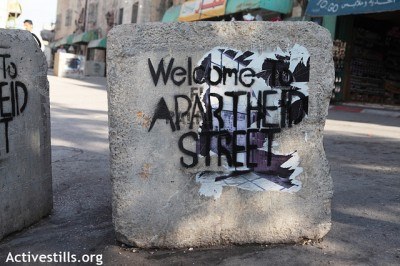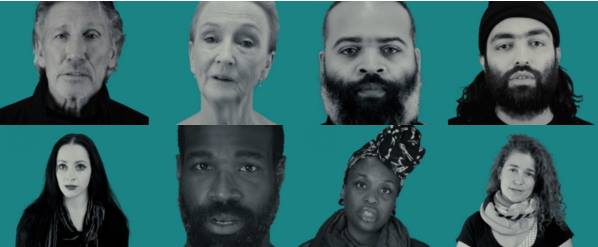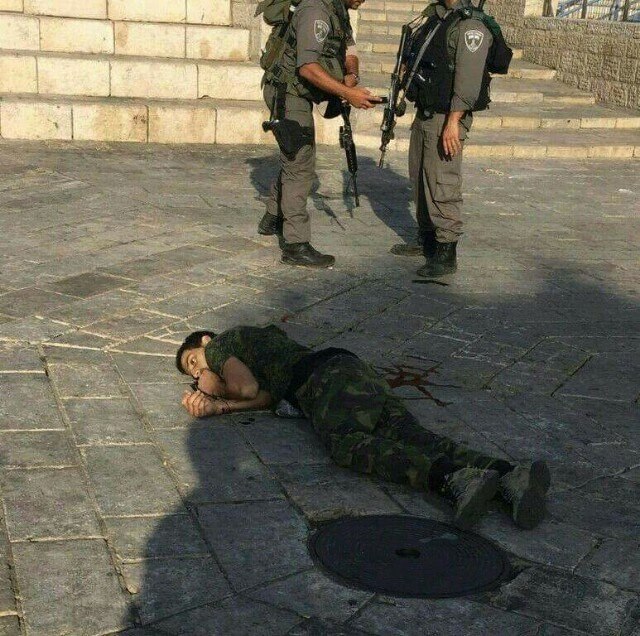Tag: BDS
-
ACT NOW ! Put an end to the ‘Closed Military Zone’ in Tel Rumeida and Shuhada Street, Hebron
11th January 2016 | Action Alert last updated 21st January 2016 *** Arabic version below *** The undersigned organisations are calling on the international community to take immediate action regarding the continuous closure of the Tel Rumeida neighborhood and the part of Shuhada Street that has remained accessible to Palestinian residents since the Ibrahimi…
-
Amplify Palestine! NYC Cultural Boycott Pledge
17th November 2015 | Adalah-NY| New York, USA Eight leading artists, all with ties to New York, state their support for the cultural boycott of Israel in our new video. The video features actorKathleen Chalfant; musician Roger Waters, a founding member of Pink Floyd; musicians Kyp Malone and Tunde Adebimpe of TV On The Radio;…
-
31 martyrs in 14 days: 20 year old murdered today in Jerusalem
14th October 2015 | International Solidarity Movement, al-Khalil team | Hebron, occupied Palestine The oldest was 30, the youngest just 2 years old. 31 Palestinians have been murdered by Israeli forces since an escalation in violence, triggered by restrictions on al Aqsa Mosque, spread like wild fire across the occupied Palestinian territories and the besieged…



